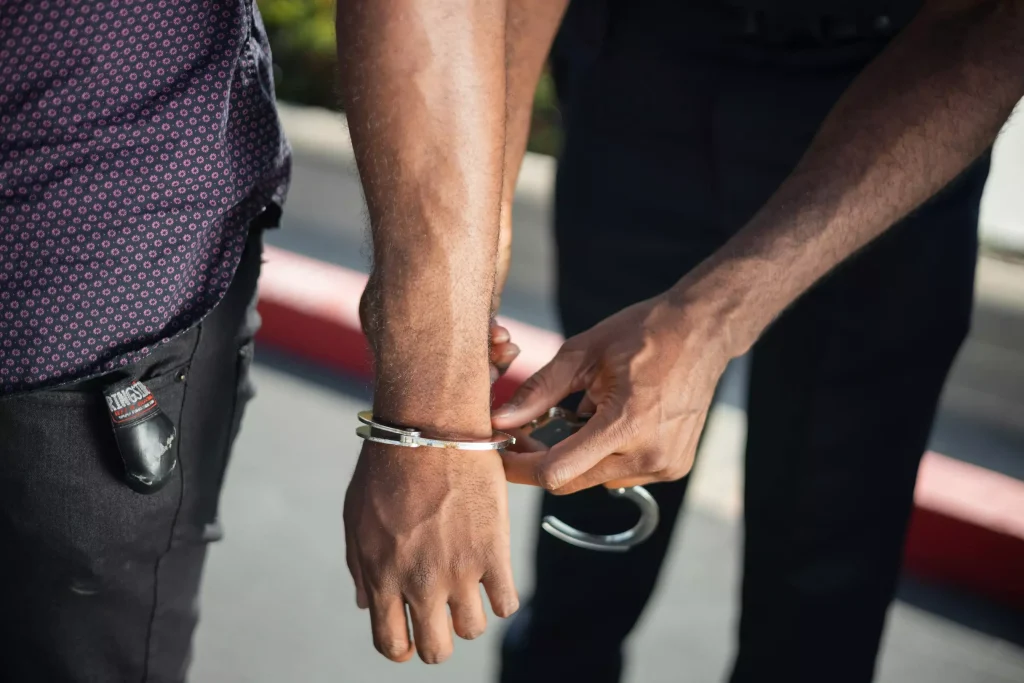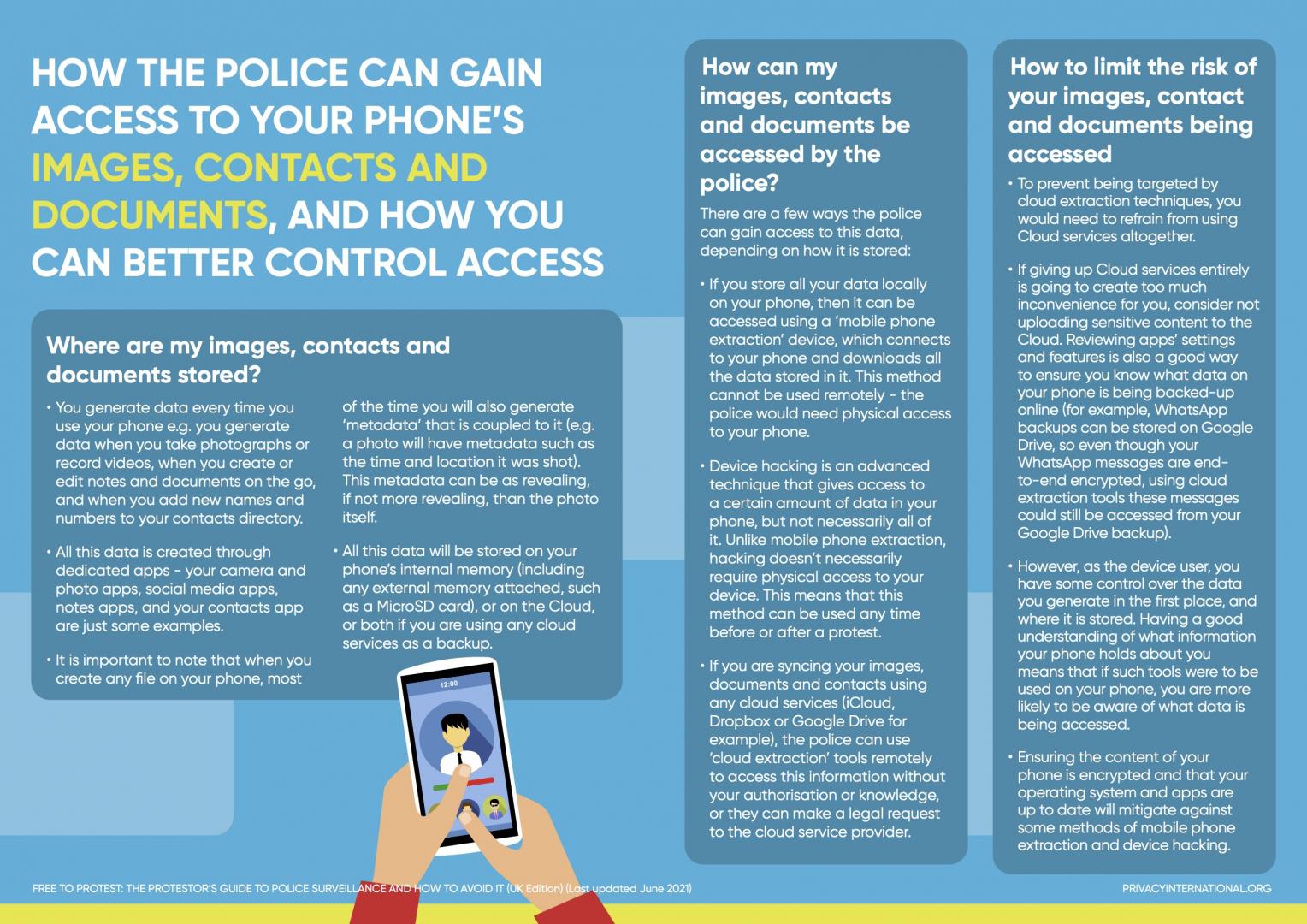Police can hold your phone for as long as it is necessary for their investigation. The exact duration can vary depending on the circumstances of the case and the laws in your jurisdiction.
Generally, if the police have obtained a warrant, they can seize and hold your phone as long as the warrant allows, which could be a matter of days or weeks. Having your phone held by the police can be a stressful and concerning situation.
It’s important to understand your rights and the legal limitations surrounding the police’s ability to hold your phone. We will explore the factors that determine how long the police can hold your phone, your rights in this situation, and what steps you can take to protect your privacy and ensure a fair outcome. Understanding these aspects can help you navigate this challenging experience with confidence and awareness.
The Legal Basis
The question of how long the police can hold your phone is an important one, as it involves the delicate balance between protecting individual privacy and allowing law enforcement to conduct their investigations effectively. To understand the legal framework governing this issue, we need to examine the Fourth Amendment, as well as the requirements of search warrants and probable cause.
The Fourth Amendment
The Fourth Amendment to the United States Constitution protects individuals against unreasonable searches and seizures by the government. It states that “the right of the people to be secure in their persons, houses, papers, and effects, against unreasonable searches and seizures, shall not be violated.”
Key Points:
- The Fourth Amendment protects individuals’ right to privacy.
- It prohibits unreasonable searches and seizures.
Search Warrants and Probable Cause
For law enforcement to search or seize someone’s phone, they typically require a search warrant, which must be issued by a judge based on probable cause. Probable cause means that there is a reasonable belief that a crime has been committed, and the evidence sought can be found on the phone.
Key Points:
- A search warrant is necessary to search or seize someone’s phone.
- A judge must issue the warrant based on probable cause.
However, there are certain circumstances where police may be able to hold your phone without a warrant. These include exigent circumstances, where there is an immediate threat to public safety, or when consent to search is given voluntarily.
In conclusion, the legal basis for how long the police can hold your phone rests on the Fourth Amendment, which protects individuals’ privacy rights. Search warrants, issued based on probable cause, are generally required for the police to search or seize someone’s phone. However, certain exceptions exist, such as in cases of exigent circumstances or when consent to search is granted. It is important to be aware of your rights and consult legal advice if necessary in such situations.

Credit: www.loveducotelaw.com
Duration Of Seizure
The duration of seizure on a phone by law enforcement varies. Police can hold your phone for a limited period under legal circumstances. Always be aware of your rights regarding phone seizure by authorities.
Duration of SeizureLaw enforcement’s ability to seize your phone has raised concerns about digital privacy.Initial SeizurePolice can initially hold onto your phone for investigative purposes.Extent of ReviewJudges may review the seizure to determine its lawfulness within a reasonable timeframe.Also Read: How to Get a Danish Phone Number
Accessing Data
Police can legally hold your phone for a limited time, depending on the circumstances. While there are variations in laws between states, generally, police can hold your phone with a warrant for as long as necessary to extract data relevant to an investigation.
Understanding your rights in this situation is crucial.
Exigent Circumstances
In urgent situations, police can seize phones without a warrant. They need to prove immediate danger or risk of evidence destruction.
Consent and Cooperation
With consent, police can access data immediately. Cooperation in investigations can influence the duration of phone holding.
Accessing Data: When dealing with mobile phone data, several factors can influence how long police can hold your device.
Police may access phone data without a warrant in specific situations. However, urgent circumstances must be present for this action.

Credit: twitter.com
See Also: Can You Make Phone Calls With Esim
Challenges and Protections
Legal Challenges
Understanding how long the police can hold your phone is essential in protecting your rights and privacy. However, navigating the legal challenges surrounding this issue can be complex. The length of time that police can hold your phone varies depending on the circumstances and jurisdiction. Generally, law enforcement can hold your phone temporarily if they have obtained a warrant or if they believe it contains evidence related to a crime.
However, legal challenges can arise. For instance, if the police hold your phone for longer than necessary or without legitimate justification, it may violate your Fourth Amendment rights against unreasonable search and seizure. In such cases, you may have recourse to challenge the legality of the phone seizure in court.
Data Encryption and Privacy Laws
In today’s digital age, our smartphones store an abundance of personal and sensitive information. This raises concerns about privacy and data protection. Fortunately, there are data encryption and privacy laws in place that aim to safeguard your information.
Mobile devices often have built-in security measures, such as passwords or biometric authentication, which can help protect the data on your phone. Additionally, encryption technology makes it difficult for unauthorized individuals, including the police, to access your personal information.
Privacy laws vary depending on your jurisdiction, but they typically aim to strike a balance between law enforcement’s need for evidence and an individual’s right to privacy. These laws may require law enforcement to obtain a warrant or meet certain criteria before accessing the contents of your phone.
It’s important to stay informed about your rights regarding police access to your phone and familiarize yourself with the applicable laws and regulations in your area. By understanding the legal challenges and protections surrounding this issue, you can better navigate these situations and protect your privacy.
Impact on Investigations
The impact of police holding your phone for criminal investigations can significantly affect the course of the case. Understanding the implications of this action on investigations is essential for both law enforcement and individuals involved.
Criminal Investigations
When law enforcement holds your phone, it can impact the progress of criminal investigations. The delay in accessing digital evidence may hinder the speed and effectiveness of the investigative process.
Digital Evidence Preservation
Preservation of digital evidence is crucial in criminal cases. The prolonged holding of a phone by the police can impact the integrity and admissibility of digital evidence, potentially affecting the outcome of the investigation.
Public Concerns
Police holding your phone has become a matter of public concern. The duration for which they can hold your phone seems to be a pressing issue, raising questions about privacy and the extent of their authority.
Public ConcernsIn today’s digital age, privacy rights are a major concern for the public. Many individuals are worried about the potential invasion of their privacy if law enforcement agencies are given unrestricted access to their mobile devices. This concept of unrestricted access challenges the fundamental rights to privacy that individuals cherish in an era where personal data is increasingly vulnerable to misuse and exploitation.Transparency and AccountabilityThere are also concerns about the lack of transparency and accountability when it comes to the handling of personal data by law enforcement. People want assurance that their data will not be misused or accessed without proper authorization. The lack of transparency can lead to public distrust and hinder cooperation with law enforcement agencies.In summary, the public is deeply concerned about the privacy rights and the transparency and accountability surrounding the handling of their mobile phone data by the police. These concerns highlight the need for clear regulations and oversight to address these issues and protect the privacy of individuals.Policy and Technology
Explore the intersection of policy and technology regarding police accessing your phone. Understand the limits and regulations dictating how long law enforcement can detain your device. Stay informed on your rights and the evolving landscape of digital privacy and protection.
Reforms and Guidelines
In an age where technology has become an integral part of our daily lives, it is crucial for policies and guidelines to adapt to this rapidly changing landscape. With regards to the question of how long police can hold your phone, reforms have been put in place that aim to strike a balance between protecting individual rights and enabling effective law enforcement.One such reform is the implementation of clear guidelines regarding the duration that police can hold onto someone’s phone. These guidelines aim to prevent prolonged and unnecessary seizures of phones, while still allowing law enforcement agencies to conduct thorough investigations. State governments and law enforcement bodies have been working to establish specific time limits for holding phones as part of their policies.These reforms recognize the need to ensure that police actions are proportionate and justified, especially when it comes to seizing personal devices like phones. By establishing clear guidelines, individuals can have a better understanding of their rights and expectations when it comes to their phones being held by the police. This not only enhances transparency but also reduces the potential for overreach.Technological Advancements
As technology continues to advance at an unprecedented pace, it has also played a significant role in shaping the policies surrounding phone seizures by law enforcement agencies. The emergence of new tools and techniques has had both positive and negative implications for individuals’ privacy and the ability of authorities to gather evidence.Technological advancements, such as encryption and biometric authentication, have made it more challenging for law enforcement agencies to access the data stored on seized phones. Strong encryption methods and the ability to remotely wipe data have raised questions about the efficacy of holding phones for extended periods. Therefore, policies must adapt to account for these developments to strike a fair balance.Law enforcement agencies have also recognized the potential of technology in optimizing their investigations. Access to forensic tools enables authorities to extract crucial evidence from seized phones quickly. However, the use of such tools must be governed by strict procedures to prevent unauthorized access or misuse of personal information.In conclusion, reforms and technological advancements have shaped the policies and guidelines concerning how long police can hold your phone. By establishing clear time limits and considering the implications of evolving technology, effective and fair practices can be achieved that respect an individual’s rights while facilitating legitimate law enforcement needs.
Credit: privacyinternational.org
Future Considerations
Changing Legal Landscape
Legal regulations are evolving, impact police authority to hold phones. Stay informed on current and upcoming changes.
Adaptation to Emerging Technologies
Police must adapt to rapidly advancing technologies, understand implications on digital evidence retention.
Conclusion
The duration for which the police can hold your phone varies depending on the circumstances and jurisdiction. It is essential to know your rights and understand the laws that govern this issue. By staying informed and seeking legal counsel if necessary, you can protect your privacy and ensure that your phone is not unlawfully taken or held by law enforcement authorities.
Remember, knowledge is power!







